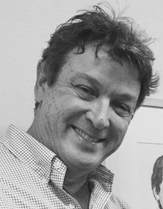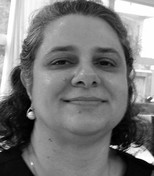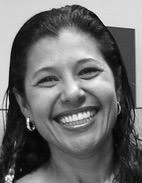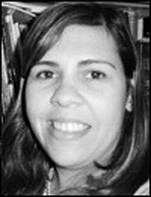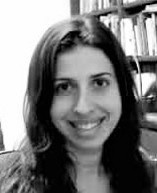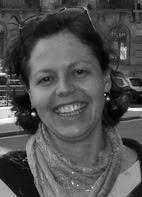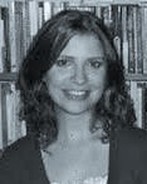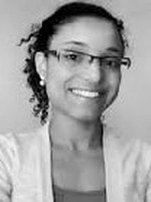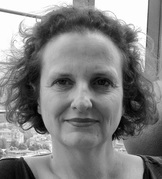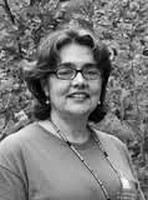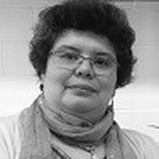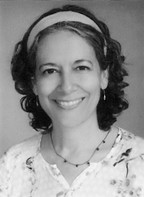The Brazilian research team
|
João Telles has a Ph.D in Educational Linguistics from OISE – Ontario Institute for Studies in Education, University of Toronto, Canada, and a MA in Applied Linguistics from the Catholic University of São Paulo, Brazil. He has developed post-doctorate research at Universitè Charles-de-Gaulle, Lille III, France (2003) and at Georgetown University (2014-15), USA. Currently, he is Associate Professor of Foreign Language Teaching Practicum at the undergraduate level in the Department of Education, UNESP- Universidade Estadual Paulista at Assis. He also teaches in the Graduate Program of Language Studies, UNESP - Rio Preto where he supervises Master dissertations and Ph.D. theses. He was the creator and the coordinator of Project Teletandem Brasil with research focus on the roles of video images and the performativity of identities in the interactions between teletandem pairs.
E-mail: [email protected] |
|
Solange Aranha is Associate Professor of English at the Department of Modern Languages, UNESP - São José do Rio Preto. She holds a PhD in Linguistics and Portuguese from UNESP-Campus of Araraquara and Masters in Applied Linguistics from the Catholic University of São Paulo, Brazil. Currently, she teaches EFL classes and supervises junior research projects at the undergraduate level. She also teaches and supervises MA and Ph.D. theses in the Graduate Program of Language Studies at UNESP-Sao Jose do Rio Preto. Her publications focus on genres and on formation of new genres in the context of learning in telecollaboration. She has conducted post-doctorate research in the United States and Italy. She is part of the research group “InViTe (Intercâmbio Virtual e Teletandem) and of the workgroup “Gêneros Textuais e Discursivos”. She is also a member of various international associations.
E-mail: [email protected] |
|
Rozana Messias has done her masters in Linguistics from the Universidade Estadual Paulista Julio de Mesquita Filho (2003) and her doctorate in the field of Education from the Faculty of Philosophy of UNESP - Marilia (2009), Brazil. She is currently an assistant professor of Foreign Language Teaching Practicum at UNESP - Assis. Rozana worked as a teacher of Portuguese Language in Elementary Education from 1993 to 2005 and in private universities, teaching Portuguese Language and Foreign Language Teaching Practicum from 2002 to 2009. She has also taught Portuguese Language, Linguistics, Communication Theory, and Education and Technology. Her research interests lie in the fields of teacher education, applied linguistics and language teaching.
E-mail: [email protected] |
|
Suzi Marques Spatti Cavalari holds a MA and a Ph.D. in Applied Linguistics from UNESP – Sao Jose do Rio Preto. Currently, she is Assistant Professor of English language at the Department of Modern languages at UNESP (Sao Jose do Rio Preto), where she also teaches and supervises MA and Ph.D. theses in the Graduate Program of Language Studies. In the context of the Teletandem Brasil Project, Suzi is interested in autonomous and collaborative learning as well as (self)assessment of foreign languages. Her publications also focus on the impact of teletandem integration into foreign language courses.
E-mail: [email protected]r |
|
Daniela Garcia graduated in Language Studies in 1997. In 2003, she obtained her Masters in Language Studies (Applied Linguistics) from UNESP - Assis. Currently, she holds a PhD in Linguistics from UNESP-S.J. do Rio Preto. G. She is Assistant Professor of English at the undergraduate level, where she supervises junior research scholarships. Her professional experiences lie in the field of language arts, with emphasis on modern foreign languages, mainly in the following subjects: English teaching, technology and foreign language learning, learning foreign languages in teletandem and the teaching-learning process. In this project, she focuses on the cultural dimension of the negotiations between coordinators who are responsible for implementing teletandem in foreign institutions.
E-mail: [email protected] |
|
Anna-Katharina Elstermann holds a Ph.D. degree in tandem learning and learner support (peer group mediation) from Ruhr Universität Bochum, Germany (2016), and a MA in Translation, Applied Linguistics and Cultural Studies - Johannes Gutenberg-Universität - Mainz (2008). Currently, she is Assistant Professor of German in the Department of Modern Languages at the University Estadual Paulista Júlio de Mesquita Filho, FCL, Campus Assis. She has experience in Translation and in the Teaching of Foreign Languages, focusing mainly on the following themes: teletandem, mediation/counselling, German and Portuguese as foreign languages, teacher training and didactics. The focus of her Ph.D. study was on the foreign language instructors' characteristics and roles during teletandem mediation sessions.
E-mail: [email protected] |
|
Ana Cristina Biondo Salomão is currently professor at the Department of Modern Languages of the School of Sciences and Languages of São Paulo State University (UNESP), Araraquara campus. She holds a MA and a Ph.D. in Applied Linguistics from UNESP – Rio Preto. She is the coordinator of the Teletandem Brasil Project in her campus and the coordinator of the Brazilian Virtual Exchange (BraVE) Program at UNESP. She is an accredited lecturer in the Postgraduate Program in Linguistics at the same institution, supervising research at Masters and PhD levels. Her research interests are foreign language teacher education, intercultural communication and telecollaboration.
E-mail: [email protected] |
|
Kelly Carvalho holds an MA and a Ph.D. in Language Studies from the Universidade Estadual Paulista Julio de Mesquita Filho, in the field of Contrastive Linguistics with focus on phonetics and phonology of Portuguese and Spanish. Currently, she is Assistant Professor of Spanish at UNESP - Assis, in the Department of Modern Languages. In the same institution, she acts as a teacher supervisor of student teachers of Spanish at the Center for Languages and Teacher Development. She is also an active research team member of the Project Teletandem and Transculturality, where she investigates the "Experiences of learning Spanish as a Foreign Language in Teletandem" - a study that focuses on the development of sociocultural competence of pre-service teachers of Spanish.
E-mail: [email protected] |
|
Karin Ramos has a Ph.D. and an MA in Language Studies from UNESP - Sao Paulo State University at Assis. Currently, she is Assistant Professor of Portuguese Teaching Practicum at the Faculty of Letters and Sciences, UNESP - Assis. Her research Interests focus on Applied Linguistics and the Teaching of Portuguese as a Foreign Language and First Language. She is a member of two research projects: Teletandem and Transculturality and Society, School and Teacher Development - CNPq - Brazilian Federal Council of Research. She is also a teaching practicum supervisor and researcher at the Center for Languages and Teacher Development, UNESP, Assis.
E-mail: [email protected] |
|
Maisa Zakir holds a Ph.D. in Language Studies from UNESP - Universidade Estadual Paulista, São José do Rio Preto campus. She completed her Master of Education (Pedagogical Approaches to Language Teaching) at UNESP - Marilia (2008) and graduated in Language Studies (Letras) from UNESP - Assis (2003), with degrees in English, Portuguese and Italian. Maisa has served as junior and high school teacher in the Public State Network and as a Portuguese Language Coordinator for the in Board of Education of Marilia (State of São Paulo). She was a Fulbright Lecturer of Portuguese language at the University of Miami, Florida, USA, from August 2009 to May 2010. She has experience in teaching Portuguese and English. In her Master thesis, she studied Portuguese Language teachers' representations of their teaching practice. In her doctoral research, Maisa focused on the representations of culture in the discourse of American and Brazilian students during teletandem synchronous interactions when learning foreign languages via webcam.
E-mail: [email protected] |
|
Micheli Gomes de Souza has a BA degree in Language Arts (Portuguese and English) from UNESP - Universidade Estadual Paulista, Assis campus. She also holds a Ph.D. and a MA. degree in Language Studies from UNESP, São José do Rio Preto campus. Under the supervision of Dr. João A. Telles, her MA research focused on foreign language teachers' first contact with teletandem practices. Her Ph.D. thesis topic related to the role and implications of misunderstandings for the development of teletandem sessions in Portuguese and English. Dr. Souza has been a participant of the Teletandem Brasil Project since its beginning, in 2006, as a researcher and mediator. She is currently an assistant professor of Foreign Language Teaching Practicum at São Paulo State University.
E-mail: [email protected] |
|
Maria Cristina Reckziegel Guedes Evangelista graduated in Degree in Pharmacy with specialization in Clinical Analysis from the Federal University of Rio Grande do Sul (1981), Training in Teaching German as a Foreign Language (Deutsch als Fremdsprache Referendariat) by the Brazil-Germany Pedagogical Institute (IPBA, 1995-1996). She holds a Ph.D. in German Language Studies (Germn Language and Literature) from the University of São Paulo (1999 and 2003). Her Master and Doctoral studies focused on the expression of modality in texts written by Brazilians learners of German language. Currently, her research efforts focus on the areas of teaching and learning a foreign language, with emphasis on German language, teaching; methodology; tandem learning, educational material (printed and virtual); use of children's and popular songs, movies and videos in the classroom, development of foreign language teachers; translation in teaching and learning German as a foreign language.
E-mail: [email protected] |
Collaborators abroad
|
USA - Michael Ferreira was born in Manhattan, NY, and raised in Rio de Janeiro, Brazil. He received his doctoral degree in Hispanic Philology and Linguistics (2001) and his M.A. in Luso-Brazilian Literature (1994) from the University of Wisconsin-Madison. In 2004, The National Endowment for the Humanities awarded Dr. Ferreira and Dr. Mark Davies (Brigham Young University) a two-year Division of Preservation and Access grant to create a fully-searchable, web-based, 45-million-word database of electronic texts in Portuguese. The Corpus do português project spans 700 years of Portuguese language and was made available free of charge in September of 2006 on the internet at www.corpusdoportugues.org. His doctoral dissertation, A Lexicon of Selected Works Printed by Valentim Fernandes (1496-1502), is an exhaustive compilation of the vocabulary contained in five turn-of-the-fifteenth-century texts which served as a pilot project for the Dictionary of the Old Portuguese Language. His main areas of expertise are Lexicography, Textual Edition, and Paleography. He is the Co-author of 501 Portuguese Verbs (Hauppauge, N.Y.: Barron's Educational Series, Inc., 2005), now in its second edition, and Editor of the Portuguese Series at the Hispanic Seminary of Medieval Studies in New York. Author of The Text and Concordances of The Portuguese Version of The Book of Marco Polo (1502), Dr. Ferreira has edited and transcribed several Old and Early Portuguese texts, and currently is the director of the Dictionary of the Old Portuguese Language Project. In the classroom, he specializes in the application of computer techniques to philology, having taught workshops in Portugal and Brazil on paleography, electronic transcription and edition of Old Portuguese texts, as well as computer-based lexicography techniques.
E-mail: [email protected] |
|
Italy - Paola Leone is Assistant Professor (tenure – track) of "Foreign Language Teaching" at the Università del Salento, Italy. In 2012, she was visiting professor at the Universidade Estadual Paulista, Brazil (UNESP). She taught Didactics of Italian as L2 and has carried out research at the University of Bologna. She has been teaching Master level courses in Teaching Italian as L2 (University of Calabria) and in Linguistic and Intercultural Mediation in Matters of Immigration and Asylum (University of Salento). She has participated in several research projects funded by the European Union and by the Italian Ministry of Education She has published research on the vocabulary of history textbooks and language learning and native non-native computer-mediated oral interaction. In this latter field, she presented at (inter)national conferences and published papers on (inter)national journals in the areas of: a) meaning negotiation, b) sequences of repair, c) interactional dominance, d) the use of discourse markers in face-to-face and computer-mediated communication. She has recently participated in the European Project on Intercomprehension - MIRIADI (Mutualisation et Innovation pour un Réseau de l'Intercompréhension à Distance).
E-mail: [email protected] |
|
USA - Leila DaCosta obtained her Doctorate in Applied Linguistics (Second language Acquisition and Technology) from UNESP - Universidade Estadual Paulista, Brazil (2015). She has a Master's degree in Applied Linguistics, Second Language Acquisition from Florida International University,Miami. Florida (2000). Her professional background includes teaching Portuguese at Florida International University (2005-2007), Middlebury Immersion Summer School (2008/11) and at the University of Miami (from 2007 to present). Her academic and research interests are in the areas of Portuguese for Spanish speakers, gender and national identities/discourses in telecolaboration.
E-mail: [email protected] |
|
Mexico - María de la Paz Adelia Peña Clavel is an associated Professor in the Foreign Language Teaching Center (CELE) at the National Autonomous University of Mexico (UNAM). She is responsible for an Advisor Training Online Diploma Course at UNAM. She is in charge of the Teletandem project at the mediateca. She received her MA in Educational Technology through the Monterrey Institute of Technology and Higher Education (ITESM) in México. At present she is studying an on-line MA in Virtual Learning Environments through Virtual Educa and the Organization of Iberoamerican States (OEI). She has been an instructor of several courses at different universities in México and presented workshops and talks related to tandem, learner autonomy, self-access centers, and material design in several international and national congresses. She is co-author of articles related to material design for self-access, learner autonomy and learner training. Her research interests are teletandem, language learning strategies, learner training and autonomy.
E-mail: [email protected] |
|
Mexico - Anelly Meondoza Díaz is trained as a teacher of Portuguese at the Teacher Training Course of Languages Cultures - CELE UNAM - National Autonomous University of Mexico. She is an ALAD graduate, graduate training of counselors in self-access centers Media Libraries. She has a BA in International Relations from the Faculty of Political and Social Sciences of UNAM. Currently, she is part of the staff of CELE UNAM and adviser of Portuguese in the Media Library CELE. She is also the manager of the project "Virtual Didactiteca Portuguese". Anelly has participated in several national and international conferences, such as CONSIPLE Brazil, Portugal and APHELLE-APHEF National Meeting of Teachers CELE.
E-mail: [email protected] |
|
Colombia – Consuelo Aponte is an Assistant Professor in the School of Language Sciences at the University of Valle in Cali, Colombia. She has a BA in Modern Languages and Specialization in Translation from the University of Valle. She has conducted Doctorate studies in Translation and Interpretation at the University of Alicante, Spain. Her professional background includes teaching academic and professional English at the undergraduate and postgraduate levels, Portuguese for Spanish speakers and Spanish as a foreign language. In Portugal and Colombia, she has worked on translation in academic and scientific fields from English and Portuguese into Spanish. Her academic and research interests are in the areas of translation, self-access centers, learning close languages like Portuguese and Spanish in teletandem.
E-mail: [email protected] |
